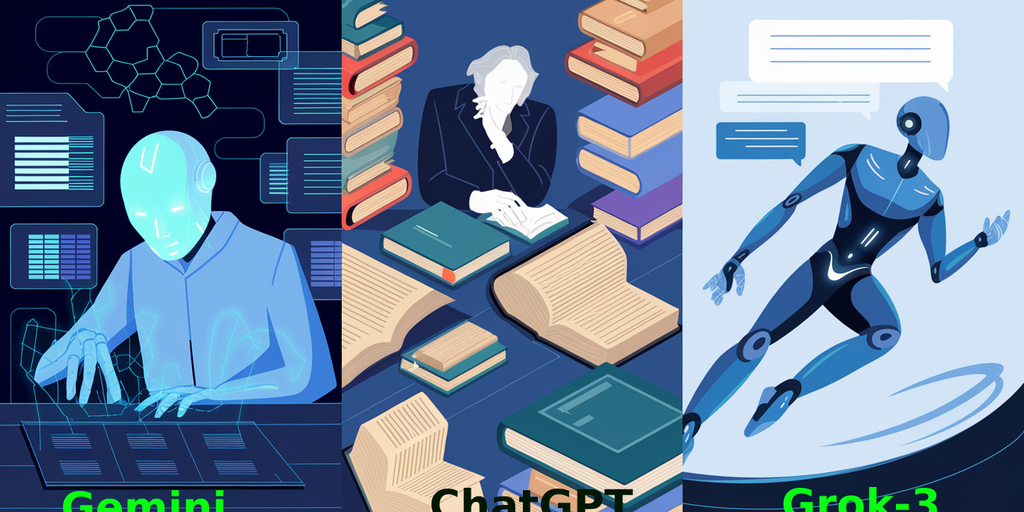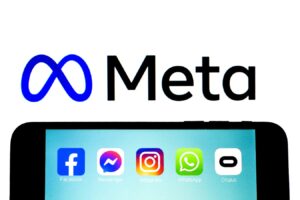Comparing Research Agents: ChatGPT, Gemini, and Grok-3

The Rise of AI Research Agents in 2025
As the world of artificial intelligence evolves, 2025 may emerge as the year of AI agents—autonomous systems built to carry out specific tasks with limited human assistance. These specialized tools do not just generate content; they are designed to autonomously perform a variety of functions that can aid in research and information gathering.
H2: The Emergence of AI Research Agents
The excitement around AI research agents began to build when You.com unveiled its innovative research tool in late 2024. Google swiftly followed suit with its Gemini research agent, which can deliver detailed, citation-rich analyses, now available for users of its Gemini Advanced package at a monthly fee of $20. Meanwhile, OpenAI joined the fray in February 2025 with its research assistant powered by GPT-4.5, shortly followed by Elon Musk’s xAI showcasing deep research capabilities in Grok-3.
Both Grok-3 and Gemini now provide their services for free, while OpenAI has introduced pricing tiers for its Plus and Pro editions—$20 for 10 monthly users and $200 for 120 monthly users. With so many options available, the question arises: which AI agent truly provides the most valuable results for users?
H3: How to Prepare for Research
When engaged in research, each AI system reveals its unique character. ChatGPT adopts a cautious and methodical approach, often asking clarifying questions before diving into tasks. This helps enhance relevance by clearly defining user intent, which can minimize errors, also known as "hallucinations."
In contrast, Gemini functions more like a collaborative partner. It takes the time to develop a structured research plan, allowing users to review and amend it before the research begins. This transparency grants users greater control over their research direction.
Grok-3, characterized by a straightforward approach, bypasses planning and jumps right into action. It excels at delivering quick results but requires highly detailed queries for optimal performance.
H2: Speed Testing the AI Agents
Performance speed was notably distinct among the three AI tools. In timed trials, the results were as follows:
- Grok-3: Finished first in just 3 minutes.
- Gemini: Completed its task in 11 minutes.
- ChatGPT: Required 16 minutes for task completion.
This represents a significant speed difference, with Grok-3 being 433% faster than ChatGPT. The time advantage can have real benefits for users who need urgent information, like journalists or professionals under tight deadlines. However, those requiring detailed insights might prefer ChatGPT or Gemini’s thoroughness.
H2: Observability in Research Processes
These AI systems differ widely in how much insight they provide into their research processes, affecting user trust. Gemini offers the most transparency, allowing users to track its information-gathering steps, which resembles a digital audit trail.
ChatGPT, however, acts more like a "black box," providing minimal visibility into its operations, leaving users uncertain about the research’s progress. Grok-3 strikes a balance with a mix of transparency and structure, presenting key findings upfront before delving into details.
H2: Depth of Research Quality
In comparing AI research tools, the depth of research is crucial in distinguishing sophisticated systems from mere search engines.
ChatGPT delivers expansive analyses, capable of producing content that matches academic-level research. For example, its exploration of philosophical questions generated a detailed 17,000-word analysis.
Gemini offers a valuable balance of structure and depth, providing a clear report of more than 6,500 words. It organizes information effectively, incorporating citation numbers that enhance its reliability.
- Grok-3, while efficient, prioritizes brevity, producing reports around 1,500 words. It covers essential topics but lacks depth, making it suitable for quick reference but less ideal for comprehensive academic work.
H2: Citation Practices and Their Implications
Each AI agent claims to consult many sources for its research; however, it’s essential to scrutinize these claims. A deeper look revealed that all three AI systems often treat different pieces of information from the same source as separate citations, inflating the number of sources consulted. For instance, when an AI states it has used "20 sources," it may have drawn from a handful of documents, contributing to a misleading perception of the breadth of its research efforts.
Moreover, Grok-3 sometimes links to dead pages, reducing its reliability in providing accurate references.
H2: Selecting the Right Tool for Your Needs
In summary, these AI research agents are designed with different functionalities to cater to varied user needs:
- Gemini (8.5/10): Ideal for serious research involving transparency and source verification.
- ChatGPT (8/10): Best for in-depth exploratory research despite its slower response time.
- Grok-3 (7/10): Perfect for quick insights when time is critical, although it lacks depth.
The most suitable choice largely depends on what you prioritize—speed, thoroughness, or transparency. Understanding these factors will lead you to the AI research tool that best meets your specific requirements.




